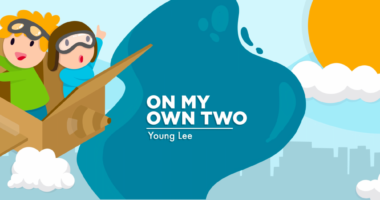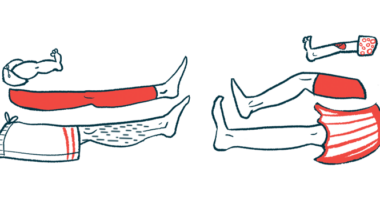Reminding Myself of the Freedom Found in Living Authentically
How practicing self-honesty has helped me deal with CMT and other life issues

I imagine most have heard the phrase “the truth will set you free.” I’ve heard some folks apply these words as general advice against spreading lies. Others appreciate the Christian roots of the phrase. I once even heard a person use the quote in the context of sales advice.
A recent conversation with a friend about honesty prompted me to consider more deeply what it means to be truthful with yourself. And when I think about this type of truth, I see another kind of freedom I hadn’t fully appreciated until recently.
Of course, self-honesty of this sort is something I still need to work on. And I imagine most people are like me and find that being truthful with ourselves isn’t always easy or natural. Gradually learning to become more honest with myself, however — particularly regarding Charcot-Marie-Tooth (CMT) disease — has allowed me to live more authentically and be more open with others around me.
I don’t think I realized the moments when I wasn’t being genuine, but looking back, I can think of some — like when I was determined to fuel a narrative that CMT didn’t affect me at all. In such times, I’d tell myself, and others, that I had no desire to do something, even though I was actually afraid I couldn’t, or that I’d embarrass myself, or that I’d out myself as disabled before I was ready.
This mindset affected the activities I’d participate in, as well as how fully I’d push myself in physical tasks and sports. It shaped the topics I brought up in conversations with acquaintances and even with physicians, physical therapists, and personal trainers.
Years ago, for example, I worked with a personal trainer, but didn’t tell him what limitations I had with CMT. It hurt our coach-client relationship because I think he could tell something was off. He was right: I was insistent that I wasn’t interested when I was actually scared.
This lack of self-honesty affected other areas of my life. I imagine it affected the level of service I received from some medical professionals, and it likely hampered the development of some friendships.
Being honest with myself often takes a conscious effort. It’s easy to absorb certain narratives and beliefs unconsciously from what we see in the media. These narratives may include the idea that it’s a form of strength to deny that disability affects us, or that talks of disability are taboo and ought to remain that way.
Striving to be more honest with myself sometimes means ensuring I have moments for reflection and self-examination to ask myself, “Why am I doing what I’m doing?” and “What emotion am I actually feeling, and what is driving it?”
Such moments of introspection may not always result in a change in action. After all, it’s important to say no when appropriate and to set boundaries. But for me, it’s also important that I notice the gap that sometimes appears between my actions and my feelings. That way I can ensure I act wholeheartedly and have an easier time achieving the goals I set for myself.
This kind of honesty is almost a life hack, I think. I didn’t find it instinctual initially, but it’s gotten a bit easier as I’ve grown older and naturally begin to care a bit less about impressing others. Yes, it can be nice to appreciate this kind of freedom.
Note: Charcot-Marie-Tooth News is strictly a news and information website about the disease. It does not provide medical advice, diagnosis, or treatment. This content is not intended to be a substitute for professional medical advice, diagnosis, or treatment. Always seek the advice of your physician or other qualified health provider with any questions you may have regarding a medical condition. Never disregard professional medical advice or delay in seeking it because of something you have read on this website. The opinions expressed in this column are not those of Charcot-Marie-Tooth News or its parent company, Bionews Services, and are intended to spark discussion about issues pertaining to Charcot-Marie-Tooth.








Jill Marie Stuhlmueller
Young, this article hit home for me! I enjoy reading your work...and love how honest you are! Keep up the great work of inspiring others living with CMT!
Jill (from Cincinnati...we met a few years back at the Columbus Walk 4 CMT!)
Garrick Fay
I have benefited from your post and wanted to thank you .